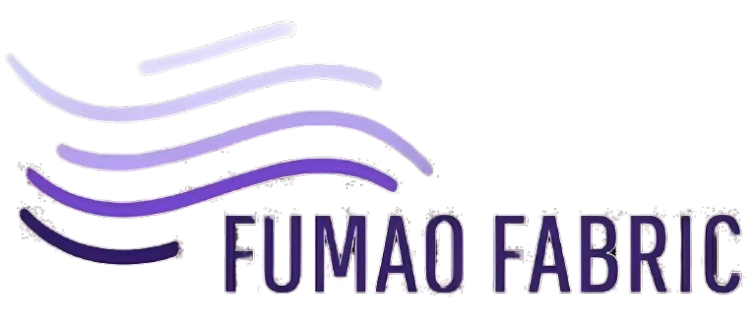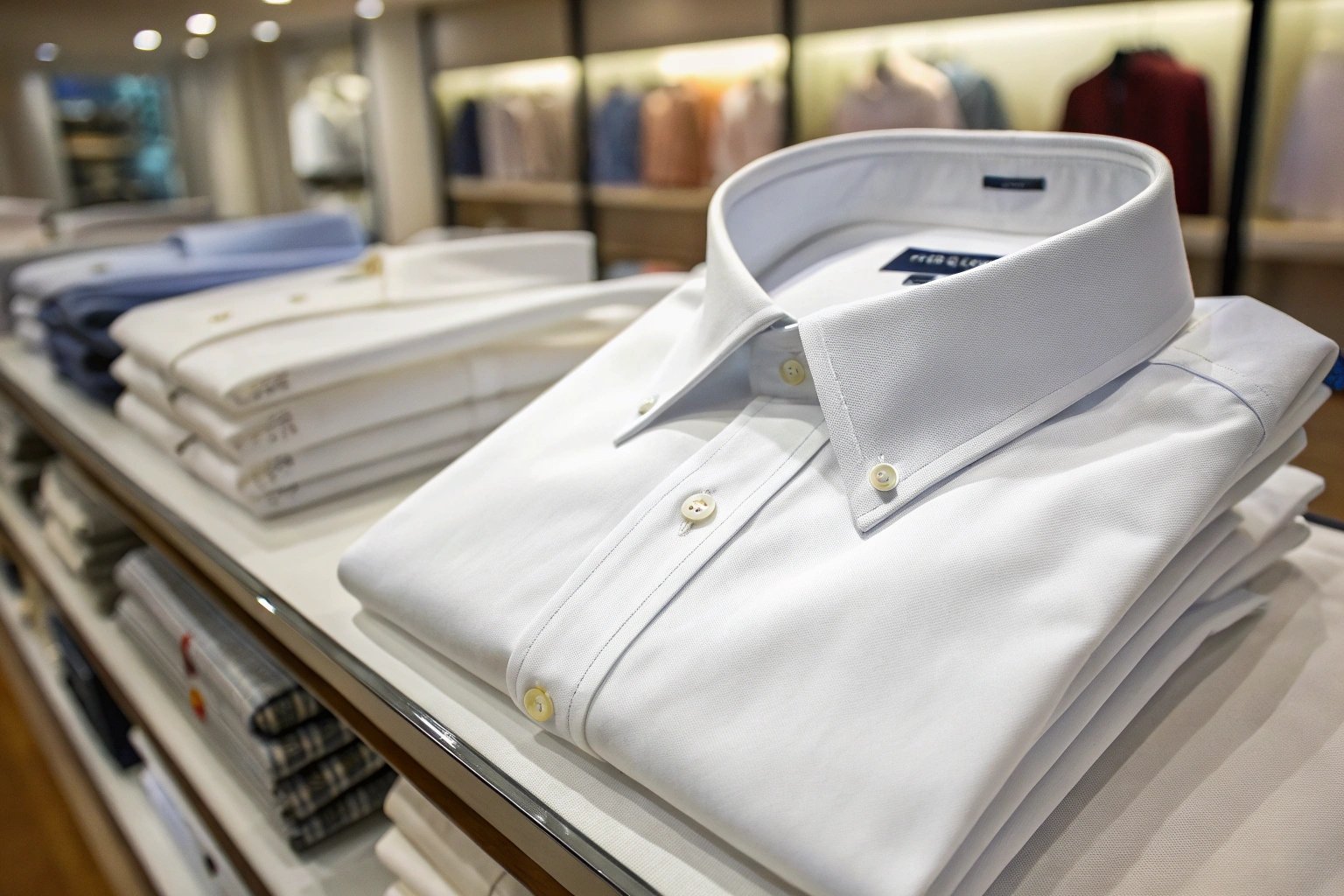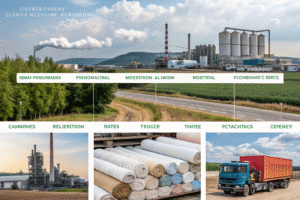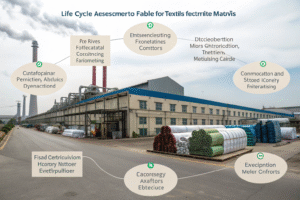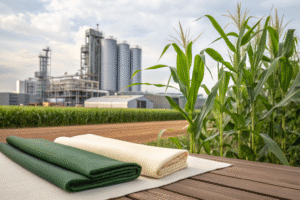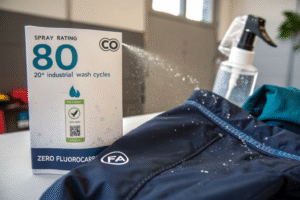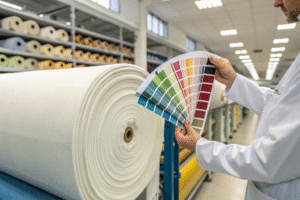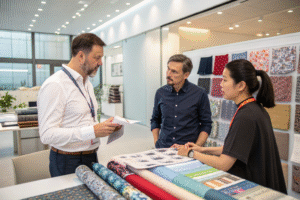If you're building a premium shirting line, not all cotton is created equal. Regular ring-spun yarns may be cost-effective, but they often produce shirts that pill quickly, fade faster, or lose their crispness after just a few washes. That’s where compact spun cotton becomes the secret weapon for discerning buyers.
In this article, I’ll explain why compact spun cotton is the ideal choice for premium shirting, how it compares to other yarns, and how our fabric mill in China guarantees consistent quality for upscale fashion clients.
From softness and strength to production efficiency, compact yarns offer advantages across design, development, and final retail appeal.
What Makes Compact Spun Cotton Different?
Compact spinning is a modern technology that minimizes fiber flyaway and creates denser, cleaner yarns. It was developed to overcome the weaknesses of conventional ring spinning.
Unlike regular yarns, compact spun cotton has a smoother surface, fewer protruding fibers, and higher tensile strength, which makes it ideal for luxury dress shirts.
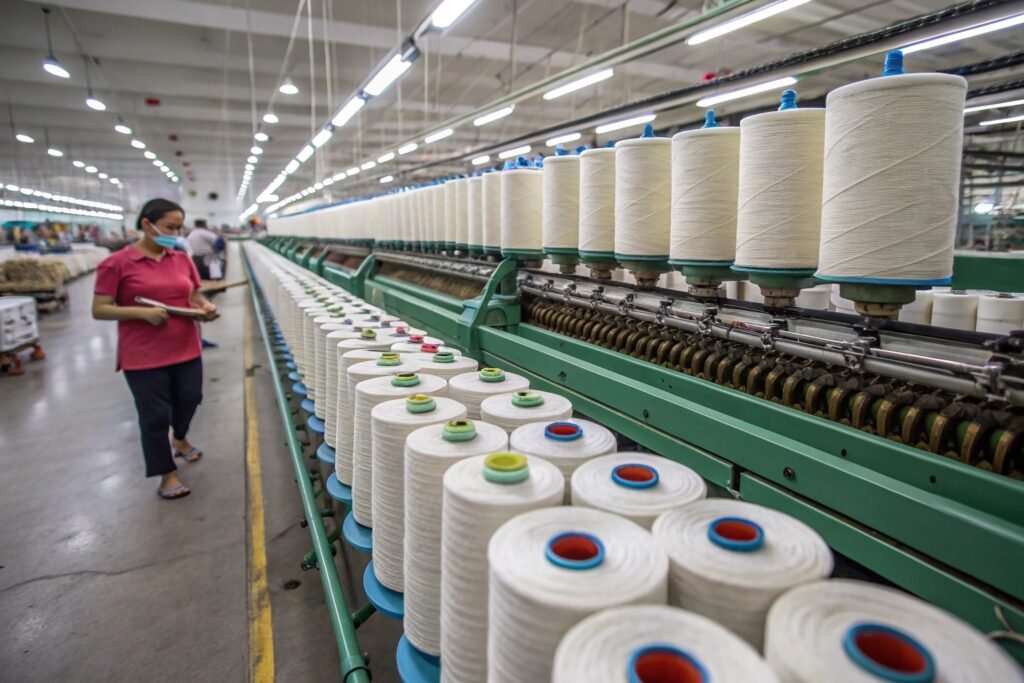
How Does the Compact Spinning Process Work?
In compact spinning, fibers are condensed by airflow or rollers just before twisting. This leads to:
- Better fiber alignment
- Reduced hairiness
- Tighter yarn structure
This process boosts yarn strength and uniformity, which directly translates into smoother woven fabrics for shirting.
Why Does This Matter for Shirts?
Because shirting fabrics require both aesthetic smoothness and durability, compact yarns eliminate surface fuzz, improve wrinkle resistance, and reduce pilling—key to keeping shirts looking sharp after repeated wear and washing.
Even high-thread-count poplins benefit from compact yarn clarity.
What Are the Benefits for Shirt Brands and Tailors?
Whether you’re making business shirts, formalwear, or upscale uniforms, fabric choice directly impacts customer loyalty and perceived value.
Compact spun fabrics give shirt brands a market edge with better drape, reduced shrinkage, and enhanced dye retention.
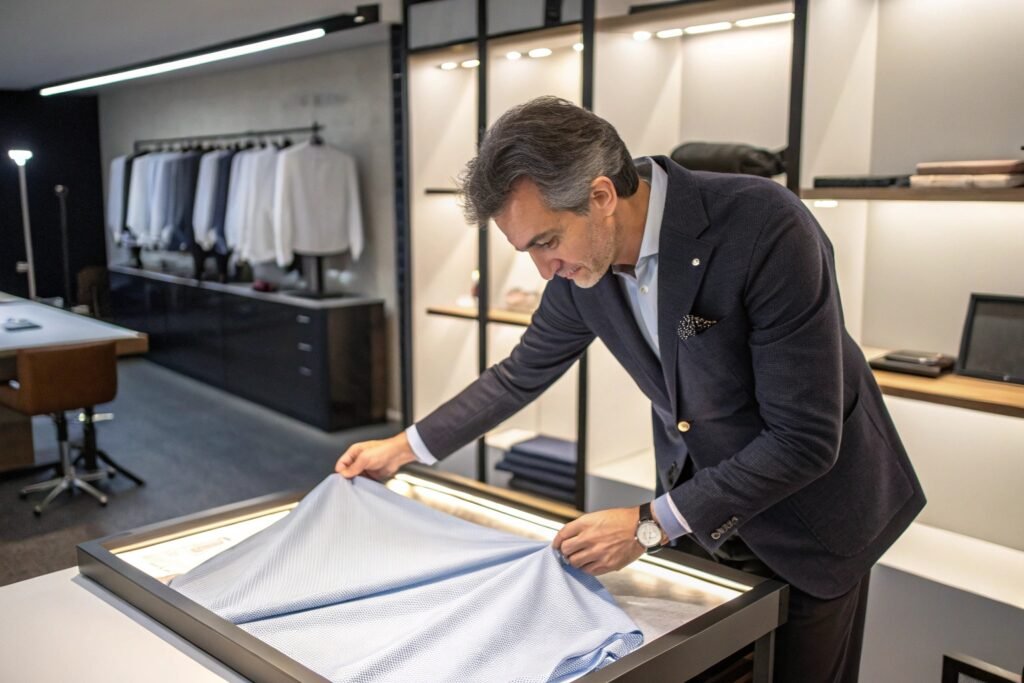
How Do Customers Perceive the Difference?
Customers may not know the term “compact yarn,” but they feel the benefits. Shirts made from compact spun cotton:
- Feel softer from the first touch
- Maintain their shape and smoothness after 10+ washes
- Resist lint, fuzz, and underarm pilling
These traits build long-term brand trust and reduce returns due to fabric failure.
What About Cutting and Sewing?
In production, compact yarn fabric cuts more cleanly, frays less, and sews with smoother seams. Our factory sees fewer skipped stitches and thread breaks when using compact-based fabrics—especially on automated cutting tables or high-speed flatbed sewing machines.
This increases both productivity and consistency, especially for OEM shirtmakers.
How Does Compact Spun Cotton Improve Dye and Finish?
For premium shirting brands, visual uniformity and crisp colors are non-negotiable. Compact spun fabrics hold dyes better because of their tighter structure and smoother surface.
We achieve higher color depth and lower dye migration with compact yarns, producing elegant, stable hues even in pale or deep tones.
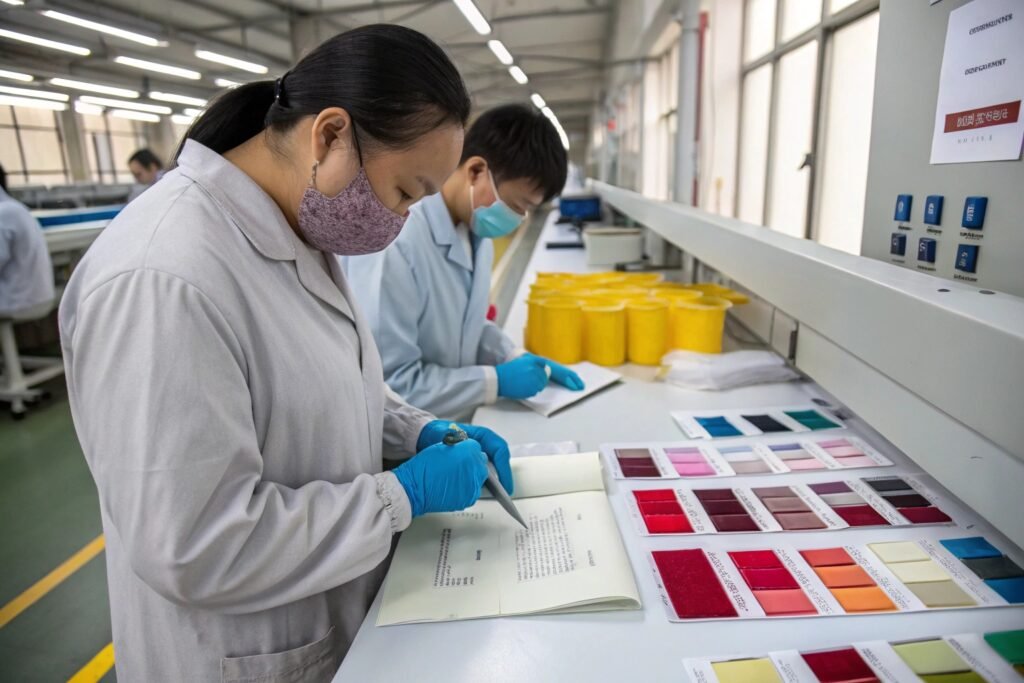
What Does This Mean for Color Fastness?
Because of reduced surface fuzz, compact yarns dye more evenly. This improves:
- Colorfastness to washing (ISO 105-C06)
- Colorfastness to rubbing (ISO 105-X12)
- UV fade resistance
Compact yarn fabrics also react better to finishes like wrinkle-free, easy care, or antibacterial treatments, as the coating adheres uniformly with fewer fiber voids.
Can Compact Yarn Be Used in Printed Shirting?
Yes. In fact, printed shirts made with compact yarn substrates have sharper motifs and cleaner outlines, because there's less wicking or “bleed.” Many digital printers now request compact-woven substrates for high-resolution prints.
How to Source Compact Spun Cotton Shirting from China?
China’s textile mills have widely adopted compact spinning—especially in Zhejiang, Jiangsu, and Shandong. But not all fabric labeled “compact” meets true export quality standards.
We supply 40s to 120s compact spun shirting fabrics with OEKO-TEX certification, lab test data, and 48-hour sample dispatch for international clients.

What Should Buyers Ask Suppliers?
To avoid greenwashing or overclaims, ask for:
- Yarn spec breakdown (compact vs semi-compact)
- Test reports on pilling, shrinkage, and skew
- Lab dip or color card references
- MOQ and available GSM ranges
We recommend requesting at least three swatches across different weave types (poplin, twill, dobby) to compare feel, density, and visual clarity.
Do You Offer Custom Finishes?
Yes—we can apply:
- Silicone softener for a peachy touch
- Wrinkle-free coating for business travel wear
- Anti-bacterial finish for uniforms or tropical climates
- Easy-iron surface for retail brands
Finishing is done in our partner mill with CNAS-accredited QC.
Conclusion
Compact spun cotton is the gold standard for premium shirting. It combines softness, strength, and dye depth into one fabric that elevates the customer experience and simplifies production. Whether you're creating boardroom-ready dress shirts or formalwear for weddings, compact yarn-based fabrics offer fewer compromises and more design flexibility. At Fumao Fabric, we specialize in custom-developed shirting using compact yarns, fast sample turnaround, and lab-tested specs for clients worldwide.
